Allergic to soy? these are 7 non-soy sources of protein
A common misconception about plant-based eating is that the only way to get enough protein in your diet is if you load up on all the soy. However, the truth is that while tofu and tempeh are common staples in a vegan diet, they definitely aren’t the only source of plant-based protein. So, whether you are allergic to soy, or just prefer to keep soy out of your plant-based diet, you have options.
We’re sharing seven delicious and nutrient-dense non-soy sources of protein that you can enjoy while eating a plant-based diet.
7 Non-Soy Sources of Protein to Add to Your Plant-based Diet
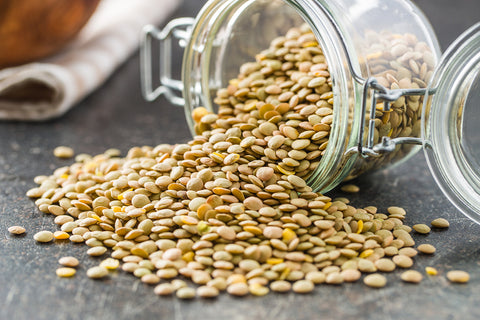
#1 Lentils: If you’re looking for a protein-boosting plant-based superfood, look no further than the almighty lentil. In just ½ cup of cooked lentils, you will pack in about 12 grams of protein, and about 7.5 gram of dietary fiber. Now that’s a plant-based superfood, and two really great reasons to make this inexpensive food a regular part of your plant-based diet.
Wondering how to get more lentils into your diet? Check out Veestro’s Beluga Lentil Braise, an excellent source of protein (15 grams) and full of anti-inflammatory superfood goodness.

#2 Nutritional Yeast: Looking for a cheesy flavor without the dairy? Nutritional yeast has you covered! Here’s a super easy way to sprinkle on some added protein into your vegan meals without any soy or dairy. You can pack in about four grams of protein in just two tablespoons. Plus, you will also get a nice dose of B-vitamins and trace minerals like zinc, selenium, and manganese to support immune health. It tastes great, and it’s healthy. It’s a win, win.
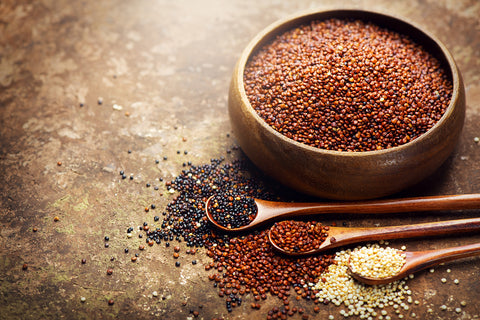
#3 Quinoa: While most plant-based foods aren’t considered complete protein sources, quinoa is! One cup of cooked quinoa contains a whopping eight grams of plant-based protein. Pair that with some lentils, dark leafy greens, and a sprinkle of nutritional yeast, and you have yourself a protein-packed vegan meal.
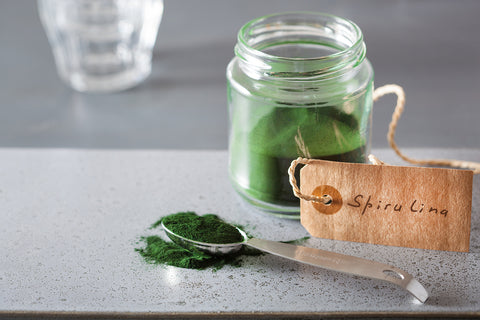
#4 Spirulina: Who knew this superfood was so rich in plant-based protein? Not only is spirulina one of the most nutrient-dense superfoods you can add to your diet, but it is also considered a complete protein and contains about four grams of protein per tablespoons. It’s also rich in iron, giving your body exactly what it needs to thrive on a plant-based diet.

#5 Hempseeds: These tiny but mighty seeds are bursting with nutritional value from omega-3 and omega-6 fatty acids to magnesium, and protein, these seeds can be a great addition to your plant-based diet. Hempseeds are an ideal soy-free protein-rich superfood to sprinkle over your bowl of oatmeal or added to smoothies and will pack in about nine grams of protein in three tablespoons.
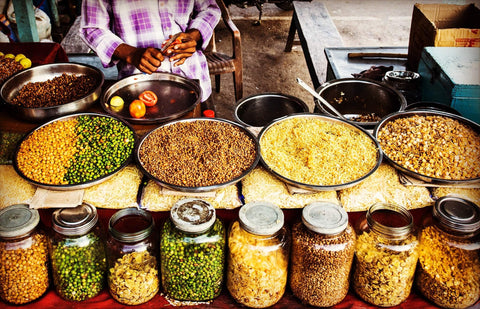
#6 Beans: We can’t forget about beans when it comes to bulking up your no-soy sources of plant-based protein. There are so many varieties of beans that it’s easy to add them to your diet and not get bored. Plus, they are also loaded with fiber to help support gut health. In just one cup of black beans, you will get about 15 grams of protein and 15 grams of fiber! If you need an easy way to boost your protein intake, beans are the way to go. Try Veestro’s Tortilla Chili which contains a delicious combo of black beans and adzuki beans, and lentils for the ultimate protein-rich plant-based meal.
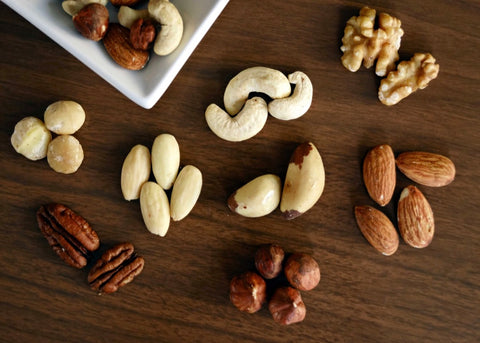
#7 Nuts: Nuts are also a rich source of plant-based protein, and they can easily be added to your diet. Try making a nut butter sandwich, spreading some nut butter on your morning toast, or add a tablespoon to your smoothies for a protein boost. Things like almond, peanut, and cashew butter are also great sources of healthy fat and can add about three grams of plant-based protein per tablespoon.
The Bottom Line
There are so many ways to add plant-based protein to your diet without having to consume soy. And, not only are these soy-free foods rich in protein, but they also happen to be some delicious plant-based superfoods that we could all benefit from getting more of in our diet.
Try adding these foods to your diet to supercharge your protein intake and fuel your body with what it needs to feel your best on a plant-based diet.
Read more about The Soybean Saga: Myths and Facts.

